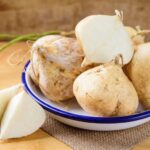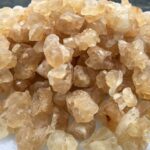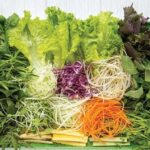The centenarian, Albert Stiles, recently celebrated a memorable birthday at Trymview Hall Care Home in England. The party was adorned with traditional cake, balloons, and the presence of dear friends, creating a joyous and heartwarming atmosphere.
To commemorate this special milestone, the care home’s chef prepared a unique dish especially for Mr. Stiles. This intriguing dish was a delightful combination of beetroot, goat cheese, candied walnuts, and crisp celery, adding a creative and flavorful touch to the celebration.
Albert Stiles, the centenarian, shared, “I’ve loved beetroot since I was a child and often prepared it in various ways. My mother used to cook it with many different dishes. But this was the first time I’ve tasted such a delicious beetroot terrine.”
When asked about his longevity, he revealed that he never imagined he would live to be 100. Upon retiring at 50, he thought he might live to 70. However, life had other plans for him.
In an interview with Express, Mr. Albert attributed his long life to his belief in the health benefits of beetroot. “I’ve always believed that beetroot has played a significant role in improving my health,” he shared.

Mr. Albert Stiles, aged 100, shared his surprise at reaching this milestone.
Beetroot is indeed a highly nutritious food. According to Healthline, a reputable American health information source, beetroot is hailed as a “superfood” and is recommended to be included in one’s daily diet.
The attention beetroot receives is not without reason. Nutritionally, 100g of cooked beetroot contains approximately 44 calories, 1.7g of protein, 0.2g of fat, 10g of carbohydrates, and 2g of fiber. Additionally, this root vegetable provides a range of minerals and vitamins such as folate, manganese, copper, zinc, magnesium, iron, vitamin C, and vitamin B6.
With its rich nutritional profile, beetroot offers significant health benefits to consumers.
Cancer Risk Reduction
Beetroot stands out with its vibrant color due to the presence of betalain, a water-soluble antioxidant compound. In addition to betalain, beetroot also contains various flavonoid compounds known for their antioxidant and anti-inflammatory properties.
Components like betalain and other antioxidants in beetroot can help detect and neutralize free radicals, unstable molecules that can form in the body. If present in large numbers, these free radicals can contribute to inflammation and increase the risk of cancer development.
Heart Health
Inflammation can lead to plaque buildup inside arteries, resulting in heart attacks. While medication to control cholesterol and blood pressure is essential, beetroot juice emerges as a natural consideration.
Beetroot contains nitrates, which the body can convert into nitric oxide. This compound helps dilate blood vessels, thereby effectively reducing blood pressure and inflammation.
A study at St Bartholomew’s Hospital in London found that the rate of patients who had previously undergone stent implantation or experienced heart issues decreased by 50% when they consumed beetroot juice daily for six months. This underscores the potential of beetroot in supporting cardiovascular health.
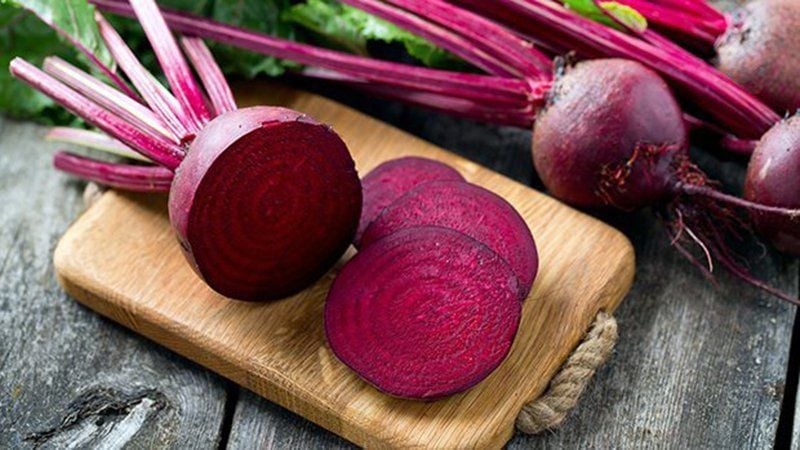
Beetroot is rich in nitrates, which can be converted into nitric oxide by the body.
Anemia Prevention
Beetroot is an excellent source of iron, a mineral crucial for increasing hemoglobin levels in the blood and reducing the risk of anemia. Additionally, this vegetable is rich in vitamin C, which enhances iron absorption in the body. Including beetroot in one’s diet supports overall health and serves as an effective measure to prevent anemia.
Brain Health
Beetroot naturally contains nitrates, which improve brain function by promoting blood vessel dilation and increasing blood flow to the brain. Research indicates that consuming beetroot can enhance blood circulation to the frontal lobe, the area of the brain associated with cognition and memory. Thus, incorporating beetroot into one’s daily diet may contribute to improved cognitive function.
A specific study involving individuals with type 2 diabetes revealed that after just two weeks of daily beetroot juice consumption, their cognitive function significantly improved. This highlights the potential of beetroot in supporting not only physical health but also cognitive and memory functions.
Blood Sugar Control with Beetroot
Beetroot is a rich source of alpha-lipoic acid, an antioxidant that aids in lowering blood sugar levels and improving insulin sensitivity. Additionally, the high content of phytochemicals and nitrates in beetroot has been shown to regulate blood sugar levels and reduce insulin resistance.
Beetroot’s ability to control blood sugar is beneficial not only for diabetics but also for non-diabetics. Studies have shown that adding beetroot to one’s diet can help mitigate blood sugar spikes after meals and reduce insulin secretion. This demonstrates that beetroot is not just a nutritious food but also plays a vital role in maintaining healthy blood sugar levels.
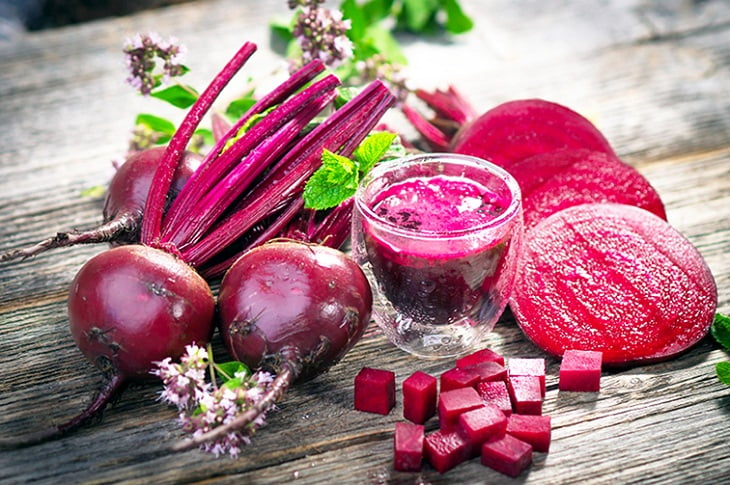
Beetroot is rich in alpha-lipoic acid, which helps lower blood sugar levels and improve insulin sensitivity.
Lower Blood Pressure with Beetroot Juice
A notable study by experts from Barts Hospital and the University of London found that consuming 500ml of red beetroot juice daily significantly reduced blood pressure within 24 hours. The researchers attributed this effect to the high nitrate content in beetroot.
Weight Loss Support
Beetroot, with its rich nutritional profile and low-calorie content, has established itself as an ideal superfood for those on a weight loss journey. Beetroot is not only very low in fat but also high in water content, providing a sense of fullness without the extra calories.
Moreover, the abundant fiber in beetroot not only improves digestive health but also contributes to a prolonged feeling of fullness. This is especially beneficial for those aiming to control their portions and maintain a slender figure.
Improved Digestive Health with Beetroot
Beetroot, distinguished by its high fiber content of approximately 3.4g per cup of juice, is one of the leading fiber-rich food sources. Due to its abundant fiber content, beetroot acts as a “superfood” for digestive health, helping prevent issues such as constipation, gut inflammation, and appendicitis.
Fiber not only supports digestion but also confers other health benefits. A high-fiber diet can reduce the risk of cardiovascular disease, diabetes, and colon cancer.
























